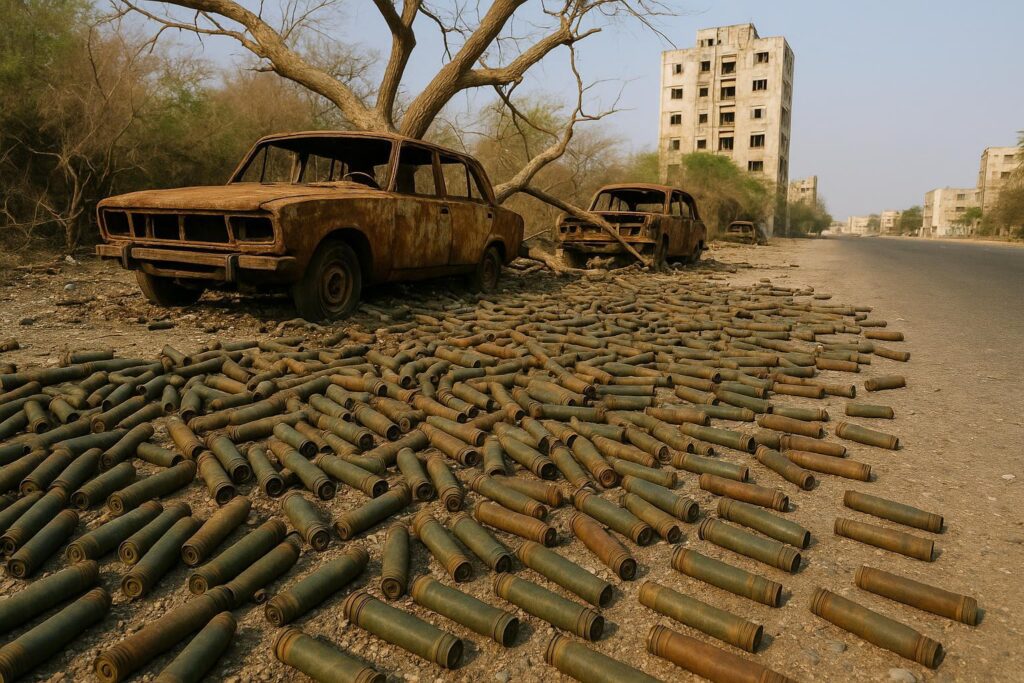Sudan War Redefines Modern Conflict
Since April 2023, Sudan’s army and the Rapid Support Forces have fought from city blocks to desert fringes for control of the state, shattering Khartoum’s ministries and scattering authority.
The battlefield tests twenty-first-century tactics: cheap drones, livestreamed mobilisation and foreign logistics often decide momentum, signaling a new paradigm for African security theatres.
Middle Powers Reshape Horn Dynamics
Washington once brokered peace from Eritrea’s birth to South Sudan’s secession, yet today Gulf monarchies, Turkey and other aspirants bankroll opposing Sudanese factions.
Riyadh and Cairo view General Abdel Fattah al-Burhan’s army as a shield against Islamist revival, while Abu Dhabi, despite denials, is widely accused of arming Mohamed Hamdan Dagalo’s forces through eastern Libya.
Negotiation Maze Without a Referee
Djibouti, Jeddah and Swiss venues hosted talks that stalled when rival sponsors could not agree on ceasefire sequencing or power sharing; an African Union official observed, “We are coordinating the coordinators rather than the combatants,” capturing the diplomatic vacuum.
Humanitarian Crisis in the Drone Era
As precision munitions smash Omdurman’s Al-Thawra district nightly, cholera and measles stalk overcrowded camps from Gedaref to Wad Madani, yet convoy routes stay captive to military calculations and monitors cannot even reach the capital’s runway.
Regional Shockwaves and Maritime Threats
Sudan’s turmoil intersects with Ethiopia-Eritrea tensions, Chad’s fragile transition and South Sudan’s rebellions; porous borders leak arms while the fall of Port-Sudan could expose Egypt’s gateway and Saudi shipping lanes to asymmetric assaults across the Red Sea.
Diminishing US Influence
The United States helped craft the September roadmap but discovered that signature power no longer equals leverage; with limited trade ties and no chequebook to rival Gulf billions, Washington now plays facilitator rather than arbiter.
African Institutions Seek Agency
IGAD proposes a contact group mixing African Union envoys with Gulf and Western partners, yet Kenya, Ethiopia and Djibouti contest leadership, illustrating ambition as much as fragmentation and leaving coherent continental stewardship elusive.
Scenarios in the Near Term
The most plausible short-term outcome is de-facto partition: the army anchored along the Nile corridor, the RSF entrenched in Darfur and Khartoum’s outskirts.
Such a frozen conflict could institutionalise aid corridors while entrenching gold-fuelled war economies; conversely, a rapid shift in sponsor priorities, for instance a Saudi-UAE détente, might still unlock a unity government, though the window is narrow.
Lessons for Continental Security
Sudan sits at the junction of the Arab world, the Sahel and the Red Sea; its trajectory will shape future responses to coup-born regimes, transnational insurgencies and climate displacements, underscoring that absent coherent oversight, local wars can morph into endless regional contests.


